Have you been dealing with stubborn acne scarring? You don't have to live with it forever – in fact, you can learn how to treat acne scars naturally, right here in this blog! We'll explore some of the best natural remedies to get rid of those scars and give your skin some much-needed TLC.
So let's get started!
Introduction to Acne Scars
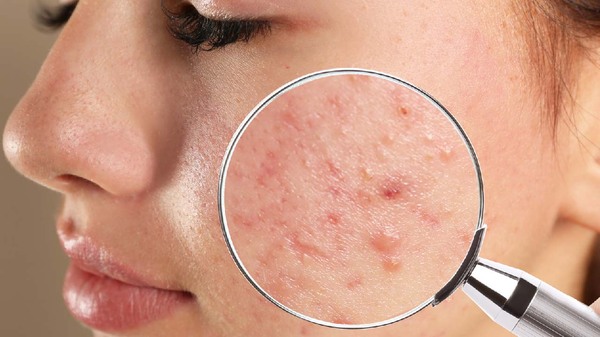
Acne scars are common among those with acne breakouts, caused by the fact that inflamed lesions cause collagen breakdown, which can lead to permanent scarring. In addition to the physical effects of scars on the skin, they can also cause emotional stress and anxiety.
Fortunately, there are a variety of treatments and therapies available that can help reduce or eliminate the appearance of acne scars.
Before we get into natural treatments for acne scars, it is important to understand how these marks form in the first place. Acne forms when a pore becomes clogged with dead skin cells and oil (sebum) produced by skin glands. This clog gives bacteria an ideal environment to thrive in and leads to an infection resulting in inflammation and swelling. If this inflammation goes deeper than just the top layer of the skin, it may damage its structure and cause scarring. This damage consists of two types:
- Atrophic or depressed scars that look like pits or indentations;
- Hypertrophic or raised scars that look like thick tissue bumps or growths on the surface of the skin.
Types of Acne Scars
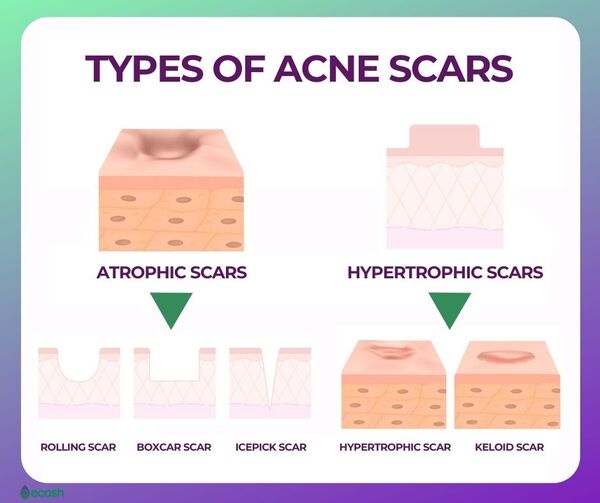
There are two primary types of acne scars—discoloration, and texture changes. Discoloration of the skin is often caused by postinflammatory hyperpigmentation (PIH). This is due to the body producing excess melanin in response to inflammation from acne lesions. The result can be a deep red, purple or brown discoloration on the skin that can take months or years to reduce in size and color.
The second type of acne scarring is from the development of permanent dermal depressions or areas with varying degrees of skin laxity commonly known as rolling scars, boxcat scars, and icepick scars. These types of scars are typically caused by severe cases of cystic acne. Other potential causes include burn injuries, chickenpox and other rashes that cause scarring damage to the deeper layers of skin (dermis), creating a loss in collagen and elastin fibres which support our skin structure.
Acne scars can be treated naturally with topical applications such as topical vitamin C (ascorbic Acid), rosehip seed oil, vitalized microdermabrasion treatments or laser resurfacing treatments; however these all should be discussed with your doctor first prior to implementation.
Causes of Acne Scars
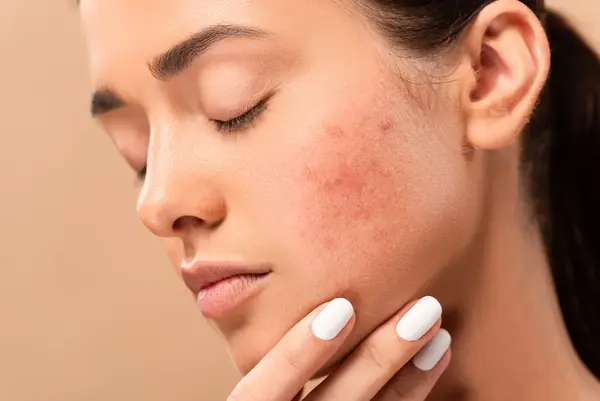
Acne scars can be caused by a variety of factors. The most common Acne Scarring occurs due to prolonged inflammation that causes the surrounding tissue to break down, leading to an indentation or depression in the skin. This type of scarring is usually referred to as “ice pick” scars due to its distinct shape.
Other factors can contribute to acne scars including picking or squeezing existing acne lesions, which can cause further damage and lead to scarring, as well as genetics. Those with darker skin tones are more likely to have post-inflammatory hyperpigmentation, which leads to patchy dark spots even after the blemish has healed; this too is considered a type of acne scarring.
Natural Treatments for Acne Scars
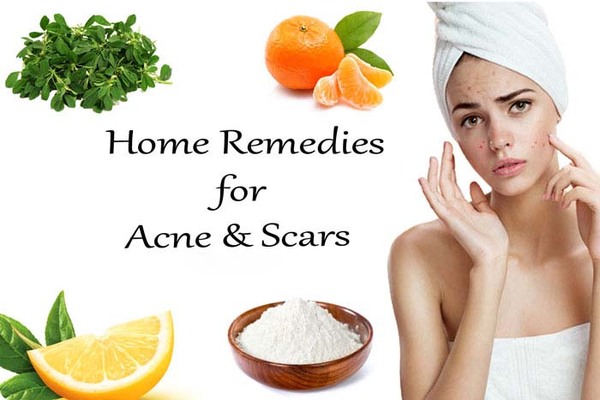
There are many natural treatments available that can help reduce the visibility of acne scars. Starting with the simplest and most accessible option, regular exfoliation has been proven to help reduce the appearance of acne scars over time. Exfoliating can be done at home using products such as gentle scrubs, chemical peels, and cleansing cloths. You can also seek professional exfoliation treatments from licensed medical professionals.
In addition to exfoliating, moisturizing consistently will help keep skin hydrated and minimize scarring. Natural moisturizers such as coconut oil, aloe vera gel, jojoba oil, shea butter, and honey can be effective in helping your skin heal naturally.
Herbal remedies have also been used historically to combat acne scars. Some popular herbs that have been known to promote healing include rose hip seed oil, tea tree oil, lavender essential oil, calendula flowers extract and most importantly turmeric powder paste which helps heal scars from the inside out due to its anti-inflammatory properties. You can learn more about these herbal remedies on websites such as WebMD or Healthline or consult a herbalist for more personalized advice on how to use herbs for healing purposes.
Finally some evidence supports the benefits of dietary changes for skin health – especially in terms of reducing inflammation and scarring of the skin due to breakouts. Research has linked diets high in Omega-3 fatty acids (e.g., found in seafood), probiotics (e.g., found in yogurt) and antioxidants (e.g., found in dark chocolate) to improved skin health outcomes including reduced scarring progression due to inflammatory breakouts like acne.
Diet and Lifestyle Changes for Acne Scars
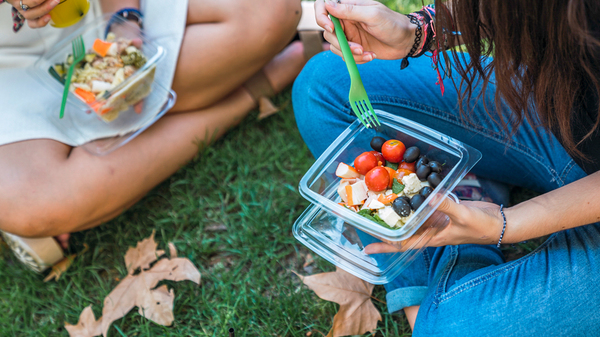
When it comes to treating acne scars naturally, diet and lifestyle changes should always be the first step. Eating foods that nourish and accelerate cell turnover can help reduce scar tissue. Proteins and omega-3 fatty acids are especially important for maintenance, as well as making sure you’re getting plenty of vitamins A,C,E and Zinc.
In addition to the diet, reducing stress is key for scar treatment. Stress triggers inflammation which over time can exacerbate scarring. Taking some time each day for relaxation and learning calming techniques like meditation or yoga can be very beneficial. Exercising regularly helps flush out toxins from the body which can also aid in reducing scars through regulated hormones. Lastly, drinking plenty of water is essential for healthy skin – staying hydrated helps cells appear brighter and more evenly toned thus reducing visibility of existing scars.
Home Remedies for Acne Scars
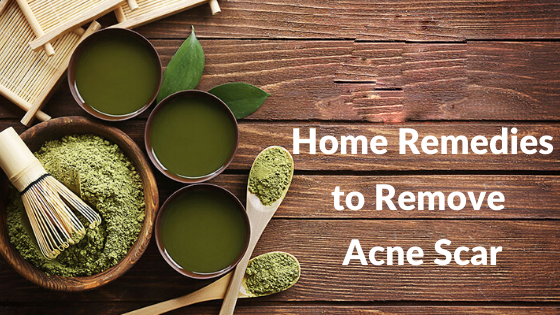
Home remedies for acne scars can be a cost-effective and safe way to reduce the appearance of blemishes, deep pock marks and pitted skin caused by severe acne breakouts. Here are five natural treatments that have proven to be effective in reducing the visibility of acne scars:
- Lemon juice: Lemon juice contains Vitamin C, an antioxidant known for its healing properties. When applied directly to affected areas, lemon juice can help reduce redness, fade dark spots and blemishes, and improve the texture of the skin.
- Honey: Topical application of honey helps to soothe inflamed skin and encourage scarring tissues to heal faster. It acts as a natural antibiotic while promoting cell regeneration in blemished areas.
- Aloe vera: Aloe vera is known for its hydrating properties while being gentle on sensitive skin types that are prone to breakouts or irritation. In addition to its antibacterial activity, aloe vera also helps soothe redness associated with acne scars and can prevent scar formation when applied soon after breakout has happened.
- Olive oil: Olive oil contains healthy fats that nourish the skin while providing an abundance of antioxidants that repair damaged cells on the surface of the skin due to past breakouts or scars from prior ones. Its anti-inflammatory properties make it ideal for healing acne scars naturally with extended use over time with noticed results in even one month from using it daily on affected areas twice daily.
- Sandalwood paste: Sandalwood paste can help reduce inflammation due to aggressive forms of acne breakouts by cooling down inflamed areas rapidly upon application awhile soothing pains associated with them too thanks it’s antibacterial activity as well as providing a calming effect due too its aromatherapy tendencies simultaneously bringing relief out of applying it onto breakout sites rapidly making it ideal for those who needing quick relief during a large outbreak episode at any given time forgiving easy access relief overall this remedy when used routinely overtime helped diminish various levels acne scaring outcomes directly overtime working magically against many different types pigmented scaring outcomes eventually diminishing visible signs them overtime this remedy works very well in treating older, more lasting difficult types scaring often found on much harder cases than others giving much hope those who facing more damaging irreversible looking outbreaks damage done previous hot periods when freshly diagnosed during other situations bringing calm relief along way anytime soon enough often evening better faces treatment course could before such times again allowing mental health benefits prevent future impacts affecting everyday life overall such times have given rise development sound strategies effectively treat such times accordingly according needed basis mainly depending severity.
When to See a Doctor for Acne Scars
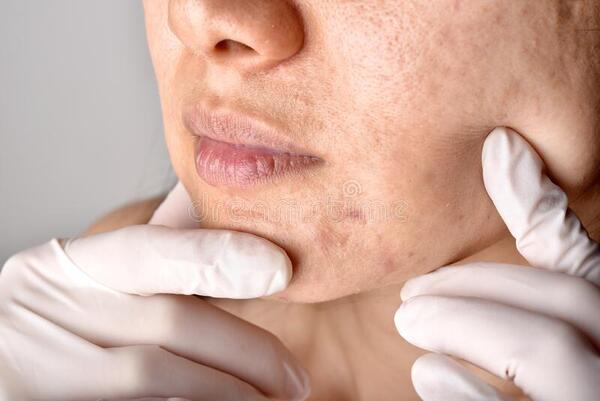
While many lightweight home treatments can help improve the texture and appearance of acne scars, severe cases usually require professional medical care. It is important to consult a dermatologist for any permanent scarring or if your acne does not respond to self-care treatment. Generally, a doctor should be consulted if you have the following types:
- Ice pick or boxcar scars that are wider than 2 millimeters and may look like a deep pit in the skin.
- Rolling scars that create an undulating texture resembling hills and valleys on the face rather than individual, clearly visible indentations.
- Hypertrophic scars that are raised bumps made up of excess collagen that are larger than the original acne lesion itself.
In addition to these more noticeable physical markers, people may also choose to see a doctor if they experience ongoing emotional distress related to their acne scarring. Seeing a medical professional who specializes in treating acne can help patients identify underlying causes of their condition as well as provide more specific solutions for its elimination or reduction.
Prevention of Acne Scars
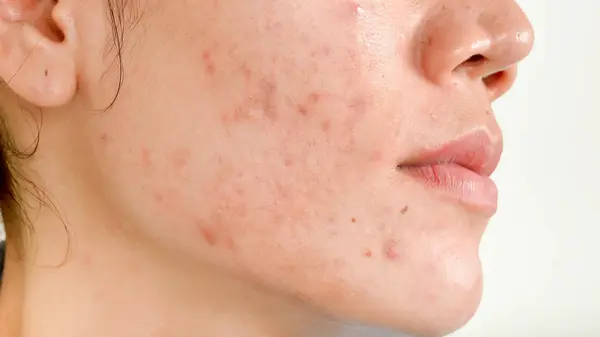
One of the best ways to treat and prevent acne scars is to make sure that your skin does not become damaged in the first place. Here are some tips on how to prevent acne scarring:
- Wash your face with a gentle cleanser twice daily, mornings and evenings. Use lukewarm water, as hot water can strip off natural oils and make the skin drier.
- Avoid picking and popping existing pimples, as this can cause damage to the skin that may result in scarring.
- Use oil-free moisturizers to keep your skin hydrated without clogging up pores. This will also help maintain healthy skin and combat inflammation caused by acne.
- Exfoliate your skin regularly (once or twice a week) with a gentle exfoliator to get rid of dead cells that may clog up pores and increase the risk of acne breakouts.
- Protect your skin using sunscreen when going outside since UV exposure can worsen existing scars or lead to new ones forming due to increased inflammation.
Related Keywords:
















